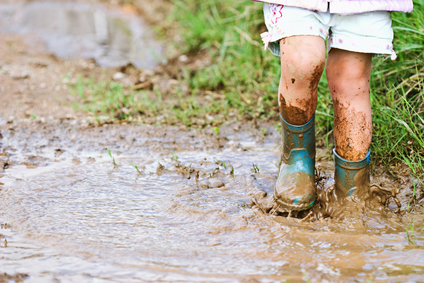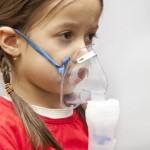 When I was a kid, you couldn’t get me to come inside. I was outside playing in the woods behind our house, climbing trees, building forts and making “sukiyaki” out of worms and dirt. And I HATED taking a bath.
When I was a kid, you couldn’t get me to come inside. I was outside playing in the woods behind our house, climbing trees, building forts and making “sukiyaki” out of worms and dirt. And I HATED taking a bath.
My mom used to call me “Dirt-It” and tell me that potatoes would grow behind my ears because I never washed there.
These days, with the lure of video games and smart tablets, it’s hard to get my kids to go outside unless I go with them on a hike. And my kids aren’t the exception.
Unfortunately, this trend, coupled with the fact that our houses may be TOO clean, may be contributing to growing rates of allergies, asthma, autism, ADHD and autoimmune diseases; this is known as the “hygiene hypothesis”.
“This theory believes that a lack of early childhood exposure to germs increases the chance for allergic diseases. Over-sanitization might suppress the natural development of the immune system”, concludes this study in Science Daily, which found that greater rates of peanut allergy are found in families with higher economic status.
In addition, scientists have recently discovered that certain microbes in the dirt act as natural antidepressants.
This blog post from Gardening Know How says that “Mycobacterium vaccae is the substance under study and has indeed been found to mirror the effect on neurons that drugs like Prozac provide. The bacterium is found in soil and may stimulate serotonin production, which makes you relaxed and happier.”
So there. I really was happy to be playing in the dirt!
 Having a son with a developmental delay was very hard on me. He didn’t walk until he was 20 months old. This was extremely hard for me because he didn’t walk until 3 weeks before his little brother was born, and I was having to carry him everywhere.
Having a son with a developmental delay was very hard on me. He didn’t walk until he was 20 months old. This was extremely hard for me because he didn’t walk until 3 weeks before his little brother was born, and I was having to carry him everywhere. Babies given Tylenol have a greater risk of developing asthma in later years. Researchers found that the more acetaminophen kids were given as infants, the more likely they were to develop asthma-like symptoms in early childhood.
Babies given Tylenol have a greater risk of developing asthma in later years. Researchers found that the more acetaminophen kids were given as infants, the more likely they were to develop asthma-like symptoms in early childhood. 

